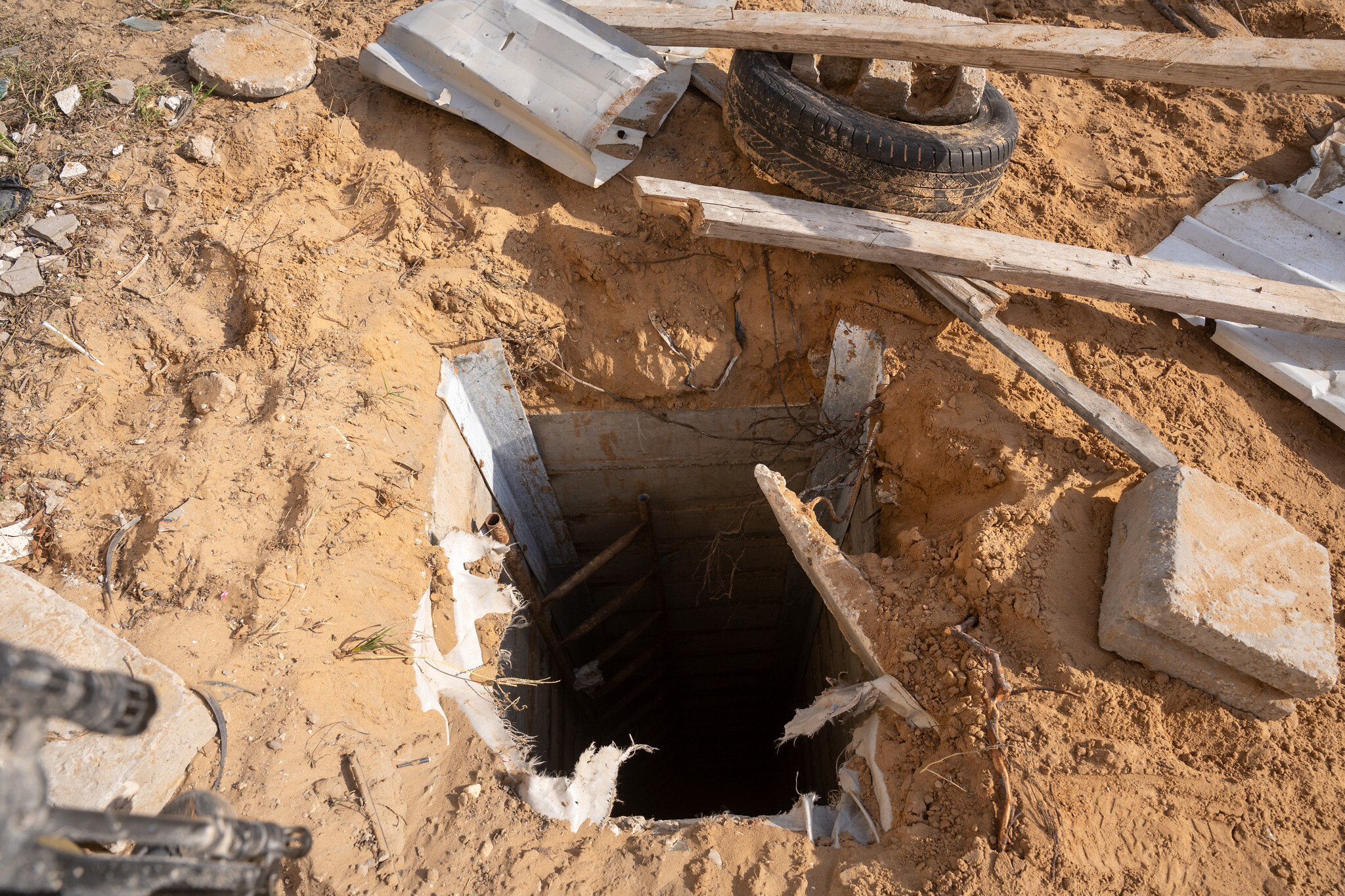Israeli attempts to pump Hamas tunnels with seawater to drive fighters up to the surface where they can be picked off by the IDF will not work because the underground network is flood-proof, a spokesman for the group has claimed.
‘The tunnels were built by well-trained and educated engineers who considered all possible attacks from the occupation, including pumping water,’ Hamas spokesperson Osama Hamdan asserted.
He went on to declare that negotiations for the further release of Israeli hostages can only begin following a complete cessation of hostilities in Gaza by the IDF.
The statement came as Israeli officials confirmed their troops had recovered three more bodies of hostages seized by Hamas in their ruthless October 7 attacks.
The victims were identified as Elia Toledano, 28, Cpl. Nik Beizer, 19, and Sgt. Ron Sherman, 19.
Toledano was attending the Nova music festival along with friend and fellow French-Israeli Mia Schem, who was released under a truce agreement at the end of November.
French Foreign Minister Catherine Colonna expressed deep sadness over Toledano’s death, confirmed by the IDF and corroborated by medical officials, military rabbis, and the Institute of Forensic Medicine.
‘We share the grief of his family and loved ones. The release of all hostages is our priority,’ she wrote on X.
According to the Israeli military, 132 of the hostages taken to Gaza are still being held.
Families of the hostages said this week that they were ‘shocked’ by the director of Israeli intelligence agency Mossad’s announcement that he was refusing to conduct new negotiations to free their relatives, and demanded an explanation from the authorities.
Meanwhile, Beizer, hailing from Be’er Sheva, and Scherman, from Lehavim, were both IDF soldiers who were taken hostage while serving in Gaza.
The Israeli military began pumping seawater into Hamas’ network of tunnels across the Gaza Strip for the first time earlier this week, according to a report, as it aims to flush the terrorists out of their underground lair.
Israel is said to have installed at least five pumps about a mile from the Al-Shati refugee camp in the north of the coastal enclave that could move thousands of cubic meters of water per hour, flooding 300 miles of tunnels.
Asked about the report, the IDF’s chief of staff Lt. Gen. Herzi Halevi appeared to to confirm the news, telling a press conference that employing water pumps to make tunnels inoperable would be a ‘good idea’.
But it came amid fears that Hamas is harboring Israeli hostages in the labyrinth of passages and that the tactic could prove fatal for those trapped inside, with families continuing to pressure the government to bring them home before it is too late.
Israeli officials subsequently informed Washington that the IDF’s introduction of seawater into the Gazan tunnels is part of a carefully executed testing procedure.
The flooding, they said, is being carried out on a limited basis – and solely in tunnels confirmed to be empty, ensuring that no hostages are present.
But the US – Israel’s most powerful ally – has expressed concern over ongoing hostilities in Gaza.
National security adviser Jake Sullivan spoke to Israeli leaders about a timetable for winding down the intense combat phase of the war, as international condemnation of soaring civilian casualties in Gaza continues to mount.
‘I want them to be focused on how to save civilian lives,’ US President Joe Biden said Thursday when asked if he wants Israel to scale down its operations by the end of the month. ‘Not stop going after Hamas, but be more careful.’
White House National Security Council spokesperson John Kirby said Sullivan talked with Israeli PM Benjamin Netanyahu about moving to ‘lower intensity operations’ some time ‘in the near future.’
It was not clear to what extent the US and Israel differ on the timetable. Israeli Defence Minister Yoav Gallant told Sullivan that it would take months to destroy Hamas, but did not say in his statement whether his estimate referred to the current phase of heavy combat.
Gallant has said this phase would be followed by a lower-intensity campaign to stamp out any pockets of Hamas resistance.
But a deadly Hamas ambush on Israeli troops in Gaza City this week showed the group’s resilience and called into question whether Israel can defeat it without wiping out the entire territory. Also reports from the occupied West Bank revealed that Hamas has gained significantly in popularity ever since Israel launched its attack against Gaza on October 8
The Daily Mail


Leave a Reply
You must be logged in to post a comment.